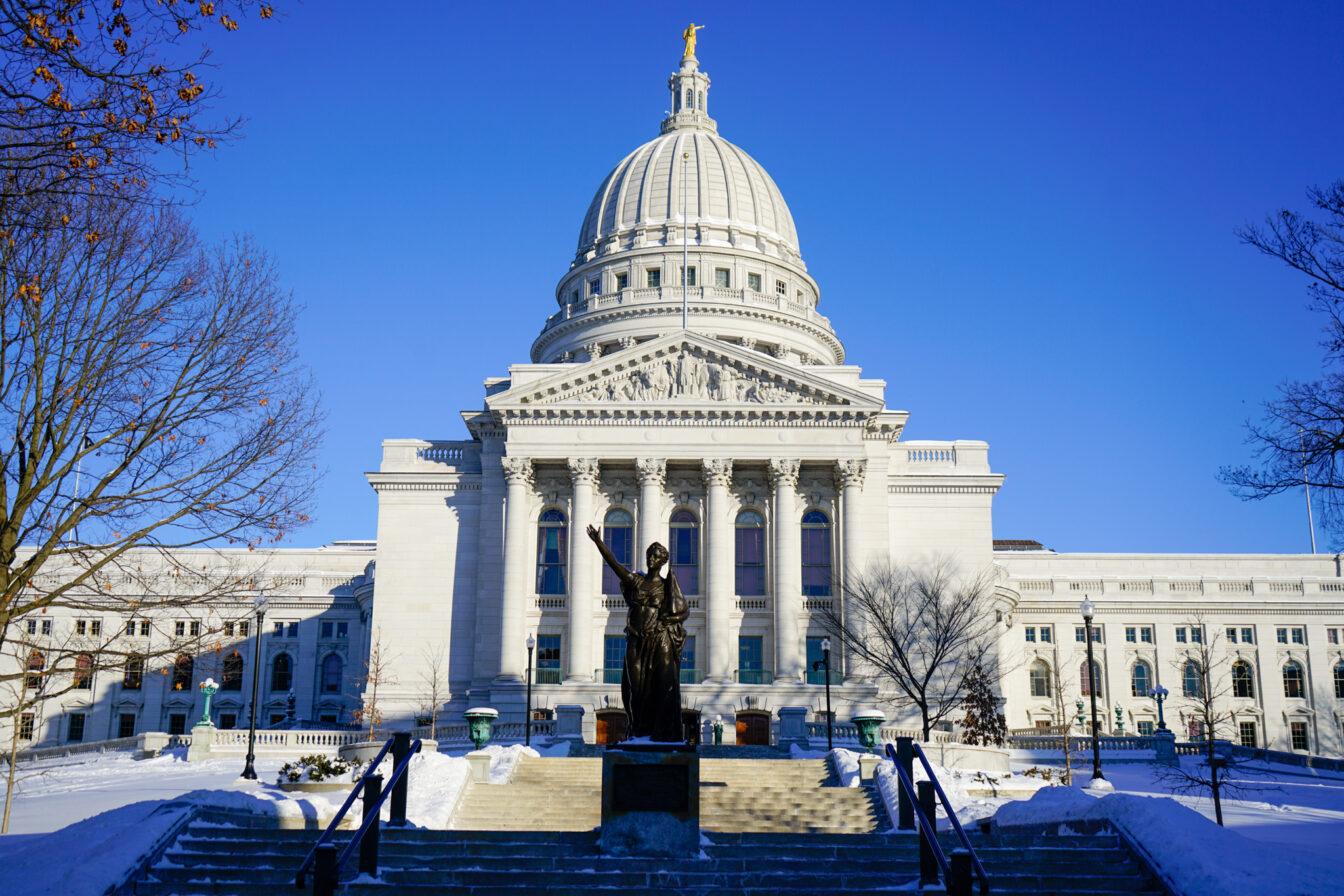A Local Journalism Package was introduced Tuesday by Democratic legislators including Rep. Jimmy Anderson (D-Fitchburg) Rep. Jodi Emerson (D-Eau Claire) and Sen. Mark Spreitzer (D-Beloit). The package consists of three bills — a Local Journalism Fellowship Program, a Newspaper Tax Credit and a Wisconsin Civic Information Consortium, all of which are designed to alleviate issues that journalists in Wisconsin face.
The fellowship program will make available a certain number of stipends and scholarship opportunities for students at the University of Wisconsin. By uplifting students, this bill is aimed at mitigating the high costs publications face for hiring new journalists, Anderson said.
The Newspaper Tax Credit allows for individual consumers to receive a tax credit on subscriptions to newspapers of their choosing. This is designed to incentivize Wisconsinites to consume more trustworthy news sources, Anderson said.
The third bill in the package — the consortium — allocates funding from the state of Wisconsin to a wide range individuals in the journalism community with the goal of promoting any and all journalist endeavors, according to Anderson.
“It would bring together journalists, media professionals, legislators, university representatives, basically anyone who is concerned about the state of media,” Anderson said. “And provide funding to tackle interesting ideas.”
The bill is designed to bolster conditions for journalists throughout their careers. It’s reach for providing funds spans a wide array of projects that may include anything relating to journalism — such as traditional print, podcasts, videos and more — according to Anderson.
More than half of U.S. counties have little to no access to a reliable news source, according to the Local News Initiative in The State of Local News 2023 report. The prevalence of news deserts — a community devoid of any access to a credible news source — disproportionately affects marginalized communities and diminishes reliable information to the consumer.
“I think we’ve seen a collapse of newspapers in many parts of the state,” Anderson said. “Oftentimes these closures hit rural areas, communities of color and low income areas more disproportionately compared to other places. We want to try and bring back local media as much as we can so that people get information that pertains to and informs them about their communities, while at the same time trying to prevent the increase in consolidation that’s been happening.”
Anderson emphasized the importance of local journalism, saying the media diet in the U.S. is unhealthy and oftentimes spreads harmful misinformation.
The presence of local media not only stimulates important journalistic standards, but also provides imperative information to members of small communities, according to Anderson.
These bills are available for the addition of co-sponsors and await being assigned to a committee for further consideration, according to Anderson.



